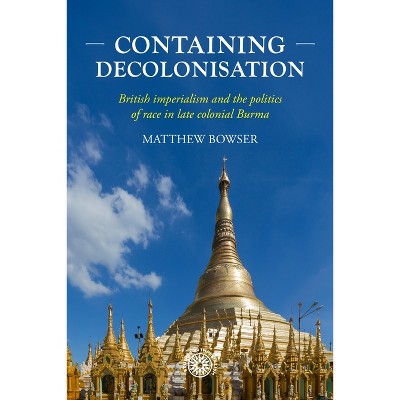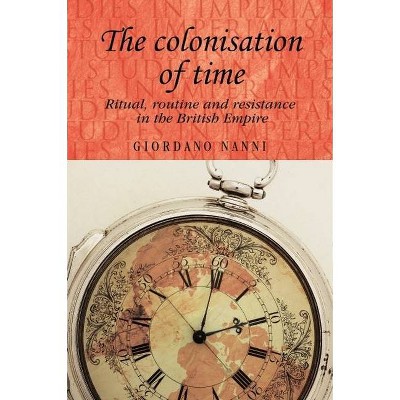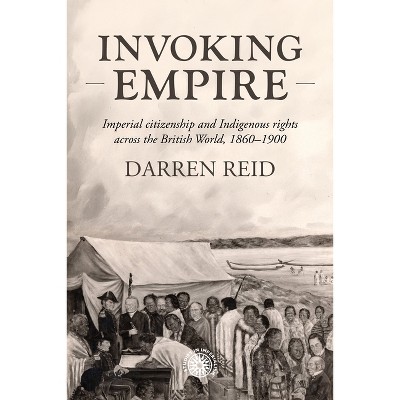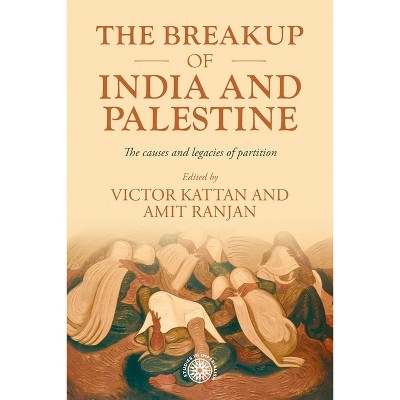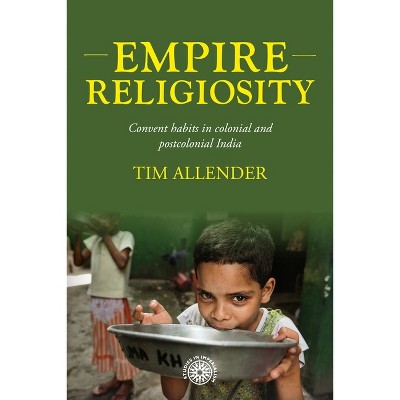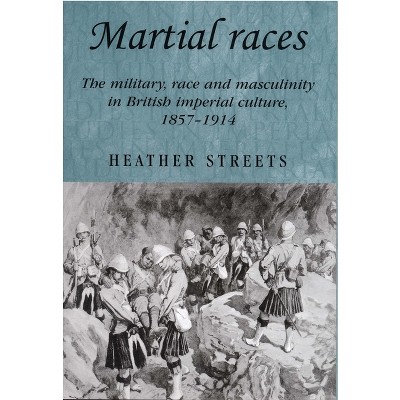Intimate Afterlives of Empire - (Studies in Imperialism) by Astrid Rasch (Hardcover)

About this item
Highlights
- Through close readings of almost twenty autobiographies written after the break-up of the British Empire, the book examines how individuals engage with the changing narrative landscape brought about by decolonisation.
- About the Author: Astrid Rasch is a Professor of Cultural and Social Studies in English at the Norwegian University of Science and Technology
- 256 Pages
- Political Science, Colonialism & Post-Colonialism
- Series Name: Studies in Imperialism
Description
About the Book
Intimate afterlives of empire is the first comprehensive study of an important genre of cultural memory, the post-imperial autobiography. Through close readings of personal narratives from four corners of the globe, it examines the dialogue between individual and collective memory in the wake of empire.Book Synopsis
Through close readings of almost twenty autobiographies written after the break-up of the British Empire, the book examines how individuals engage with the changing narrative landscape brought about by decolonisation. It considers the autobiographies less for what they may teach us about the moment remembered and more as windows on the act of remembering. This adds a crucial dimension to our understanding of the legacies of colonialism and how the ongoing process of decolonisation is reflected on the level of the individual. It argues that autobiographers are at once influenced by and seek to influence the cultural memory of empire and its legacies, and the authors' own position in both. Situated at the intersection of imperial/decolonisation history, memory studies, and life writing studies, the book uncovers this intimate afterlife of empire.From the Back Cover
'Shuttling between all four corners of the imperial compass, Intimate afterlives of empire brilliantly shows how memory is made up of metaphors, and how these travel and transpose between autobiographical writing from very different contexts. Astrid Rasch deftly traces influential shifts between individual and collective memory, and colonial and decolonial experience, persuasively showing how these are embedded in one another.'
Elleke Boehmer, Professor of World Literature in English, University of Oxford
Intimate afterlives of empire is the first comprehensive study of post-imperial autobiography as an important genre of cultural memory. It investigates the relationship between individual and cultural memory at the end of empire as voiced through the practice of autobiographical writing. While the narrative changes brought about by decolonisation have previously been studied at the level of collective or national memory, Intimate afterlives of empire is the first book to examine how individuals have responded to this changing narrative landscape. It argues that authors are at once affected by and seek to affect cultural memories of the colonial past.
Through close readings of over a dozen autobiographies and memoirs written after the break-up of the British Empire, the volume examines the forms of this memory work, demonstrating how authors position themselves and make claims to belong. It maps the key tropes, sub-genres and concerns of post-imperial autobiography from decolonisation until the present from Australia, Zimbabwe, the Caribbean and Britain. Through fine-grained analyses that never lose sight of the bigger picture, Rasch examines narrative shifts in the wake of decolonisation but also empire's lingering presence in the shape of nostalgia and racism. Theoretically informed yet accessible, the book offers an essential guide to the genre of the end of empire autobiography.
Review Quotes
'Shuttling between all four corners of the imperial compass, Intimate afterlives of empire brilliantly shows how memory is made up of metaphors, and how these travel and transpose between autobiographical writing from very different contexts. Astrid Rasch deftly traces influential shifts between individual and collective memory, and colonial and decolonial experience, persuasively showing how these are embedded in one another. The book ranges across a remarkable spectrum of writers, from Patrick White through to Afua Hirsch, and demonstrates how the colonial past continues to repeat upon the present, in ways we perhaps could not have fully anticipated, had we not been reading these autobiographies, and Intimate afterlives alongside them.'
Elleke Boehmer FRSL FRHistS, Professor of World Literature in English, University of Oxford
About the Author
Astrid Rasch is a Professor of Cultural and Social Studies in English at the Norwegian University of Science and Technology





